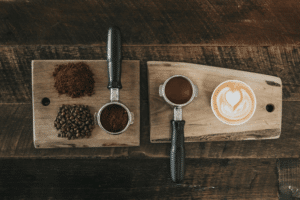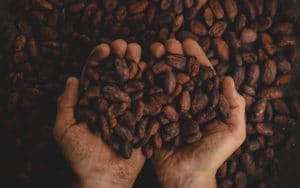
Here’s the Primer
Coffee. That beautiful, socially accepted, universally consumed (80% of the world’s adults consume caffeine everyday), drug that I’m in love with. Yes, it’ll be tough keeping this one objective.
I really do love coffee. So much that my first ever piece on Medium was about my love affair with cafes.
But I didn’t grow up on coffee. As a kid growing up in North India, our preferred source of caffeine used to be tea. And that too I had rarely.
Over the last decade though, as I started working and earning money, and the need to be hyper-productive throughout the day shot up, I discovered coffee. And it’s been a relationship that’s gone from strength to strength ever since.
Until recently, when two of my colleagues, in separate conversations, told me that they were trying to quit coffee! They’d heard it was bad. And they were (kind of) confirming with me if that was indeed the case.
I’d heard it too. But I rely on coffee so much that I never bothered to do any research about it. I didn’t want to find out anything bad about my one addiction in life. Alas, when you write a health blog, there’s only so long that you can protect your own vices.
So I bit the bullet.
Is coffee good or bad for us? Is it an addiction we need to get rid of? Or is it a blessing we need to harness?
There’s no black or white answer. And we’ll examine all the greys here today. But let me save you the anxiety (I know how vested some of you, like me, might be in proving coffee right) — I’ve done the research, and I ain’t quitting.
Now let’s step back and start with the basics.
How does caffeine work?
In this article I’ll use coffee and caffeine interchangeably. Because I’m focusing on coffee as the primary way in which most of us get our caffeine.
But remember that it’s a natural stimulant found in tea, coffee, cacao plants and many other forms too. What eventually matters is not the delivery format, but how many mg of caffeine you consume during the day.
Now, most of us use coffee to wake us up first thing in the morning. Some of us use it as a boost right before workout. And many use it as a productivity enhancer post lunch. In all these cases, we rely on the caffeine to help us overcome either lethargy or tiredness. And how caffeine achieves that, is impressive.
Simply put, caffeine blocks the effects of adenosine, which is a neurotransmitter that signals — ‘I’m tired’ — to your brain.
As we go through the day, adenosine builds up. In fact, when you say ‘I’m sleepy’, what you’re actually saying is ‘I have a lot of adenosine built up in me’. Try that the next time you want to escape a party.
Now, a cup of coffee might contain anywhere between 70–400mg of caffeine depending on what size and type you’re having. Check out how much your favourite drink has here.
This caffeine takes anywhere between 30–60mins to go from the gut into your bloodstream and fully exhibit its adenosine-blocking effects. And that effect will last for anywhere between 3–6 hours. With diminishing returns ofcourse.
It’s what it does to your brain and body during these hours, that forms the crux of arguments on both sides of the coffee debate. And both sides have some very credible arguments. I’ll tackle the top ones from each camp in this article, before I give you my verdict on Coffee.
The Pros
Coffee as stimulant

There’s really no doubt about this. Study after study has proven coffee to be an excellent stimulant. It reduces tiredness, improves mood and enhances many brain functions. So I won’t spend a lot of time here.
A note of caution though. Coffee’s mood enhancing effects are most prominently visible only after 6–8 hours of abstinence. So if you’re having your cups in quick succession — chances that you’ll feel the difference are lower.
Coffee as a pre-workout boost
Once again, the science is pretty solid. Athletes on a caffeine boost tend to perform better and feel less fatigued than those who aren’t. One study did find that the effect was a lot more pronounced when caffeine was served in the form of a capsule rather than through coffee. Because coffee has a ton of other polyphenols that have various other brain-effects.
Bottom-line though, compared to a placebo, the athletes on coffee did better. And most of us ain’t no athletes. So a nice cuppa joe before your workout is a good good.
Coffee helps increase metabolism and lose weight
This one is a mixed bag. And a bit of a fitness cum coffee industry created sham.
Yes, some studies do show some minor linkage between coffee consumption and long-term weight loss. This is caused because coffee also stimulates adrenalin production, which in turn signals the body to burn fat.
But the cumulative effect of all this adrenalin action was found to be 79kcal burnt extra in the day. Which isn’t a lot, even if true. And then one starts counting the calories that we consume extra with the coffee itself (ranging from the milk in a cappuccino to the sugar-mountain in a frappuccino).
Let’s just say that losing weight should be a reason you give yourself to have more coffee.
So those are the positives. I haven’t gone into detail here because I’m sure you’ve experienced one or many of these. Why else would you be rooting for coffee?
Let’s get to the claimed downsides now.
The Cons
Coffee induces stress, anxiety. Interferes with sleep.
Ever gotten the jitters after having one too many cups?
Especially for women, this would be a recognizable outcome of having a bit more than their usual quota of coffee. And it is true.
Remember adenosine, the tiredness signalling hormone. It’s like the body’s wear and tear barometer. As we go through the day, facing both physical and mental stress, adenosine builds up as the body’s live status update. When it crosses a certain threshold, the brain shuts down and we sleep.
When we artificially block this barometer, the brain’s ability to respond to stress goes out of whack. So stress and anxiety build-up goes unchecked.
It’s the same reason why having coffee closer to bed-time interferes with sleep. You want to rest, but the brain doesn’t believe you need it yet.
If this has been your experience, I suggest you control your caffeine dosage (not just from coffee). And the half-life of caffeine in your body is 6 hours. So please do NOT have coffee less than 6 hours before you sleep.
Coffee causes acidity & gut discomfort
I’ve never experienced this, but I hear that for some people, coffee can lead to acidity, belching and even acid-reflux (where the coffee rises back up in their throat).
If any of these happen to you, just do one of the following. Have low acid coffee (dark roast). Have a cold brew. Or just add a dash of salt. That should sort you out.
Coffee is an addiction

This is where the criticism gets heated. And of course coffee is addictive. There’s no shying away from that.
But I believe that those who make this charge, have one of these 2 problems with the addiction.
They either see it as a weakness. As dependence on a stimulant. Much like alcohol or cocaine. Or they argue that dependence on coffee for energy reduces our body’s ability to find its own natural energy. Hence the lousy feeling after every few hours of having coffee.
Let’s tackle them both in order.
Coffee is like any other drug
Yes, coffee is addictive. But how caffeine addiction works is different from, say, cocaine or nicotine.
When we consume a lot of coffee over the years, that is, we block adenosine for a long time, the brain starts producing more adenosine to compensate. So now, we need more caffeine to get the same adenosine blocking effect.
Hence, you need more and more coffee to deliver the same results. Also, if you suddenly leave coffee, there are those many more adenosine molecules floating around unblocked, leaving you feeling more tired than ever. So you crave some coffee to get you out of this bind. Both these behaviours, add up to addiction.
But cocaine works differently. It attacks the reward centres of our brain and makes us feel jubilant. And reduces our capability to judge how much of coke (or food or anything else) we’ve already consumed. The addiction there is to reward, to this feeling of being invincible. It’s a very different kind and intensity of dependence.
So yes, caffeine is the world’s most commonly used drug. But it still isn’t classified as a drug because people don’t go around banging cars and beating children on a coffee high. These are two very different forms of addiction.
Coffee reduces the body’s ability to harness natural energy
This seems true. Dependence on coffee does seem to reduce my ability to feel energetic without it. And given the fact that all those extra adenosine receptors are floating around unblocked, it shouldn’t come as a surprise.
Caffeine interferes with blood sugar regulation
Some studies do seem to suggest that coffee can lead to lower insulin sensitivity. Which means that the body’s ability to metabolize sugar is reduced. Which means it might cause weight-gain. Which, for normal people, is as true as the opposite claim that coffee helps lose weight.
For folks with type 2 diabetes though, I’d suggest that keep the caffeine intake below 150mg. For the rest of us, keep it below 350mg and you should be good.
Coffee causes dehydration
Because hey, don’t we all know, that coffee is diuretic.
First up, diuretic means ‘causes more urination’. That’s all.
And yes, coffee is diuretic for people who are just starting out. So they do lose a lot more water than they used to initially. But if you’re this far into the article, I assume you’re no coffee-noob. For you and me, our bodies have long adjusted to coffee’s diuretic effects. So just make sure you’re drinking enough water. All else is good.
My Verdict
Coffee is more good than bad. But it needs to be managed. Think of it as a Ferrari. A beautiful beast, but you need to know how to steer it.
First up, if you’re diabetic, or pregnant, or planning to sleep soon, I’d suggest you refrain from coffee.
Second, if you’re noticing that your coffee consumption is rising drastically, I suggest you count your total caffeine intake and keep that number strictly under 400mg a day.
Third, try not to have coffee in quick succession. Science proves that lower the gap between coffees, lower its brain-jolting effects. And that means you’ll need even more to get through the day.
And lastly, recognize when you’re having coffee as a social-thing rather than for the kick.
This is one aspect of coffee that science misses completely. Coffee and cafes (or tea-stalls in India), are an integral part of the social fabric of every culture in the world. A lot of caffeinated beverage is consumed not because of grogginess but for gossip. And this is usually the coffee that comes with additional calories in the form of biscuits or cakes or cookies. Double whammy!
This, for me, has been the biggest realization. So I’ve made 2 decisions. I have coffee only at pre-decided times during the day. And I never have it with any associated calories (apart from when I need a sugar kick while writing).
So it’s largely black or skimmed milk coffee. At 7am, 12pm and 4–5pm. About 300mg caffeine a day.
The 7am one is pre-workout. 12pm is pure craving. And 4pm is to get through the rest of the day in a productive state. I sleep around 11.
It’s taken me a while to hit this rhythm, and I do notice the urge to have a 4th one on some days. But I’m trying to resist it, because I get the science now.
I used to see giving-in to any addiction as a form of weakness. And maybe that is true. But I’ve learned how to use coffee to my advantage. To extract a lot more out of a day than I used to. It is, no doubt, a slightly slippery slope. But if you manage not to slip, it takes you to a nice place.